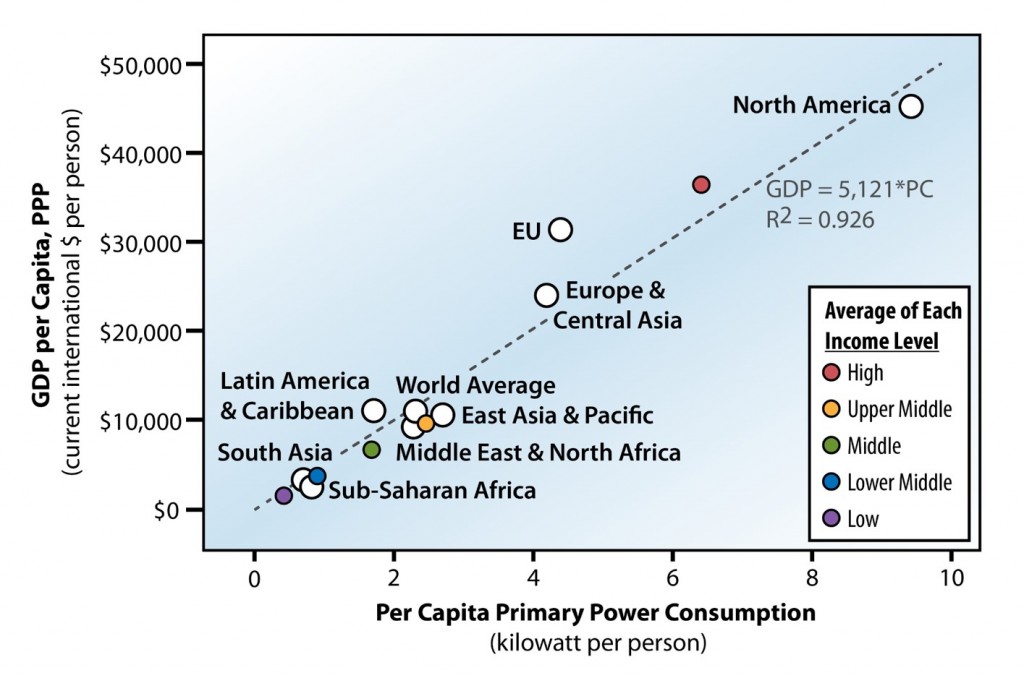3 item(s) were returned.
University Distinguished Professor
Michigan State University, Dept. of Chemical Engineering
Human well-being is a direct function of power consumed, or the rate at which work is done. The relationship between rate of energy consumption and rate of wealth production should not surprise anyone. The faster work is done (more power consumed), the more wealth that is produced. It is impossible to think of a single wealth-producing activity that does not require work—the expenditure of energy. The great increase in the world’s wealth since the Industrial Revolution is the obvious outcome of using fossil fuels to provide the energy for machines to do work. We got rich in the last couple… [more]
View InsightA diverse coalition of energy leaders put together by the Alliance to Save Energy (ASE) recently unveiled a set of recommendations for “Doubling US Energy Productivity by 2030.” Chaired by Senator Mark Warner (D-Va.) and National Grid U.S. President Tom King, the Alliance Commission on National Energy Efficiency Policy calls for growing the U.S. economy through investments, modernization and education. The Commission’s goal of doubling U.S. energy productivity (GDP/Btu) by 2030 was alluded to by President Obama in the State of the Union as was one of the Commission’s recommendations, an energy productivity “race to the top” type program. ASE… [more]
View InsightUniversity Distinguished Professor
Michigan State University, Dept. of Chemical Engineering
The last century can rightly be called the Age of (Inexpensive or ‘Cheap’) Oil as world oil consumption grew from about 20 million tons per year in 1900 to just under 400 million tons per year in 2005. Since 2005, however, world oil consumption has been nearly constant despite high demand and record high oil prices, which indicates that we simply cannot produce oil any faster. And since oil is not renewable, eventually the production (and therefore the consumption) of oil must decline. Declining oil production will be an extremely painful reality for the U.S. because not only does the… [more]
View Insight

